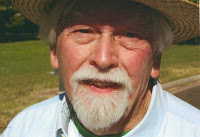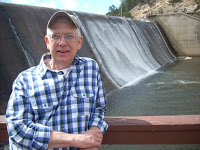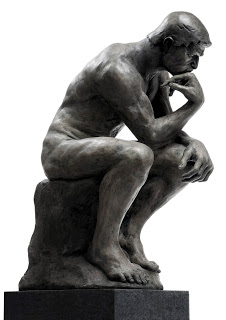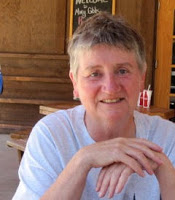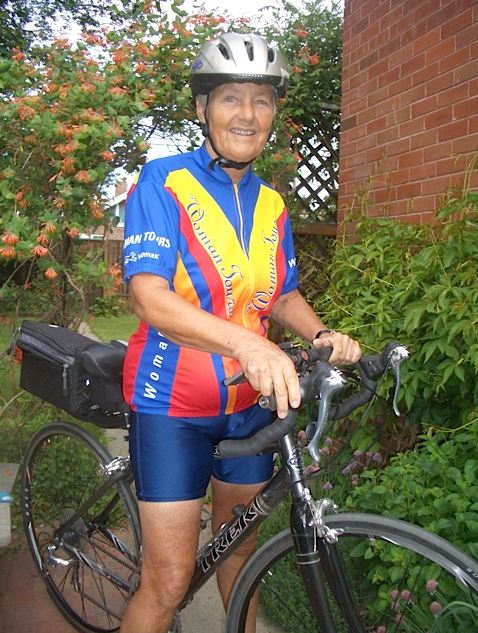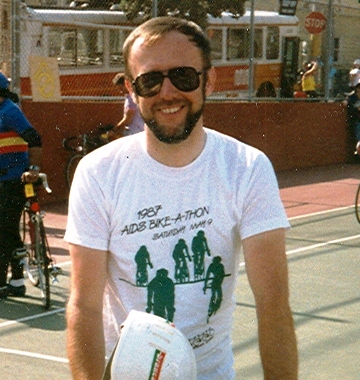I believe that everyone would agree what the word “Words” means. I don’t guess that there is another meaning. But the word “Elder” has several possible meanings depending upon spelling and the context in which it is used. So, that being said, lets explore this topic of “Elder Words”.
In general, “elder” implies age, but in the Mormon church capital “E” Elder denotes a male 19 years of age or above who holds the Melchizedek Priesthood. So, their words could convey mundane meanings or specific religious messages as in, “I baptize you in the name of . . .,” etc. The title is used in other religions as well for similar or the same purpose.
So, perhaps it boils down to the degree of “age” in which the term “elder” is appropriate within different cultures. For example, in the book Harry Potter and the Deathly Hallows, the word is used to designate the most senior (as in most powerful) magic wand, the Elder Wand. The word “senior” is a synonym for “elder” which category would include: old, ancient, adult, and grownup. Another thing about this word is that it can also be used as a proper noun as a “stand alone” name or even part of a name; as in the John Wayne movie, “The Sons of Katy Elder” and “Elderberry” as in bushes and wine.
As we are not met this day to discuss the merits of movies or to relax with a glass of Elderberry wine or listen to sermons by Elder Berry, I will present for your enjoyment, boredom, or discomfort my take on the topic of Elder Words. Be forewarned, this topic is sometimes rather depressing so I will pause briefly so anyone can take an anti-depressant or you can tough it out without one. I guarantee there will be a happy ending, however sad the journey to get there.
As one moves through life from younger to not so younger and thereby gain a life time collection of experiences speaking with those persons who either preceded or are following down the path of destiny, we have the opportunity to reflect on, ponder, skim through, or try to remember those conversations and what they may have meant or done to us.
As a potential elder everyone has one or more embarrassing words moments that parents like to recall at family gatherings. Words like, “Mom, my urine is runny.” Embarrassing words may not become embarrassing words until after the fact, as in, “I don’t want to go get it because I might break it.”, then after 4-minutes a loud crash is heard in the school hallway.
And then there are words spoken by children before they become self-sufficient: “I want. . .”; “Can I have. . .”; “Will you buy this for me?”. Sadly, sometimes these words are re-spoken by those same children after they become senior citizens. At that time, the now elder is often told by his now grownup children: “You can’t watch TV until you eat all your dinner.”; “No, it’s too dangerous for someone your age.”; “It costs too much.”; “You don’t need that.”; “You can’t have ice cream. Have some yogurt instead.”; “It’s your bedtime.”; “I don’t have time to drive you everywhere you want to go.”; “I’m not made of money you know.”; “You want to have a party while we’re gone for the weekend! Do you think we’re crazy?” Those are the moments that make an elder think weird thoughts of the type, “Oh crap! My children have become me! Now I’m in real trouble.”
Sometimes parents deliberately create “embarrassing words” moments for their children, as in these words said over an external CB loud speaker while stopped at a large intersection in Salt Lake City; “Don’t touch me there Ricky, until we get home.”
Potential elders also get elder words of advice as they grow: “Don’t eat that from the floor.”; “Just say ‘NO’!”; “Do yourself a favor and . . .”; “You get what you pay for.”; “When you go to the chicken coop, just kick the rooster away like I do.”; “Please do me a favor, when you visit grand-elder, don’t be noisy or demanding because grand-elder tires easily.”; and the ever popular, “Don’t lie to me again.”
Then there are elder work-related words. Some of which we never wanted to hear: “You’re fired!”; “Get me your supervisor.”; “All you public servants are ass holes!”; “Touch your finger tips to your nose.”; “Assume the position.”; “You have the right to remain silent and I suggest you use it. You long-hair hippie freak.”
Of course there are also hateful elder words like: “I’ll make a man out of you.”; “It’s my way or the highway.”; “You’re no son of mine.”; and “I want no homos in my house. Get out and don’t come back!”
Now let us consider the words of the Eldest of all. His guidance to us is to “Honor thy father and thy mother: that thy days may be long upon the land which the Lord thy God giveth thee.” Over time this Elder’s advice is often quoted as, “Honor your father and mother” but the reason is seldom given. Now in our time it has been shortened again to the simple but less powerful, “respect your elders” or “respect your parents.” These smacks of a dictatorial demand of parents but again lacking any explanation as to why that should be done. It often boils down to those famous but unsatisfying elder words, “Because I told you so.”
Now as most parents and other observant elders know by either personal or sad experience, requests, demands, or procedures that don’t have logical, reasonable, or plausible explanations as to the “why” something is a procedure, request, or demand will cause different levels of irritation in children. Irritation leads to frustration. Frustration leads to resentment. Resentment leads to suppressed anger. Suppressed anger leads to a rebellious attitude. A rebellious attitude leads to a conflict of words (if you are lucky and violence if you are not). A conflict of words results in elder words like: “Are you stupid or something?”; “Don’t sass me.”; “Don’t talk back to me.”; “If you say that word again I’ll wash your mouth out with soap.”; (Mother to son, “Don’t talk to me like that. You just wait ’til you father comes home.”); (Father to son—after coming home, “Never talk to your mother like that again.”); (Father to son—double standard, “Don’t talk to me like that you little shit. Go get my belt!”)
There are elder words that are not generally spoken out loud but, nonetheless, pass through the consciousness of elder and younger minds. “Can I afford it?” “I can’t afford it, but I’m buying it anyway.” “Does he/she like/love me?” “How will I survive on only social security.” “Oh crap, I don’t remember his/her name.” “I think I’m losing my mind.” “Am I bi or gay?” Etc.
Taken as a whole, all these elder words paint a rather dismal portrait of the language of elders. I believe that over our life-time we elders have learned too many of the wrong words and not enough of the right words and how to use them.
In my experience, all grandparents have a special brand of English elder words for their grandchildren. I’ve even used this language myself recently and will again this week. I will now show you how I use it to communicate with my grandchild. “Schmooch, Schmooch, do you have a kiss for grandpa?” (With finger rubbing closed lips) “Blubb, blubb, blubb.” “Open wide. Yum, yum.” “Yea! (clap, clap, clap).” “Pppppst on the tummy.” “Psssst with tongue.” “Putt, putt, putt” with lips. “(blow a kiss).” “No, you can’t eat my cell phone.” And, “Don’t eat that from the floor.” That one seems to be universally contained within all cultures.
When the time comes I’ll add these elder words also: “Hi. Grandpa is here. I brought you a present.”; “Here is a cookie, but don’t let your mom see it or tell her I gave it to you.”; “Your bedtime is 9:00 but I’ll let you stay up until 10:00 as long as you don’t tell anyone.”; and “Let’s sneak out and go get ice cream.”
Elder words that are relatively rarely spoken: “Let me show you a better way to do this.”; “Wow. You did that really well.”; “Am I doing it right?”; “How can I do it better?”; “Let’s go play catch.”; “Why don’t you invite 2 or 3 friends and we’ll go to a movie.”; “Yes, I’m busy but I will always make time for you.”; “Do you want to talk about it?”; “Hey, I’ve got this extra $5 bill you can have with your allowance this week.”; “Where do you want to go on vacation this summer?”; “Yes dear. I’d love for your mother to come visit.”; “Yes, you can invite your friends over for a party. What do you want for snacks?”; “How do you feel about . . .?”; “You’re so smart.”; “You’re so bright, I’m gonna change your name to Sunny.”; “Can I help you with your chores?”; and, “No dear. Nothing you wear makes you look fat.”
The topic of elder words would not be complete without the words that are never ever said enough to anyone, “I love you.”
© 2015
I was born in June of 1948 in Los Angeles, living first in Lawndale and then in Redondo Beach. Just prior to turning 8 years old in 1956, I began living with my grandparents on their farm in Isanti County, Minnesota for two years during which time my parents divorced.
When united with my mother and stepfather two years later in 1958, I lived first at Emerald Bay and then at South Lake Tahoe, California, graduating from South Tahoe High School in 1966. After three tours of duty with the Air Force, I moved to Denver, Colorado where I lived with my wife and four children until her passing away from complications of breast cancer four days after the 9-11 terrorist attack.
I came out as a gay man in the summer of 2010. I find writing these memories to be therapeutic.
My story blog is TheTahoeBoy.Blogspot.com
